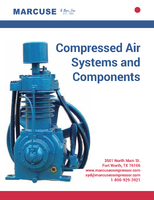IEEE Conference to address wireless communication in space.
Press Release Summary:
Scheduled for December 14–16, IEEE International Conference on Wireless for Space and Extreme Environments is designed to help attendees understand and solve emerging problems facing wireless sensing and communication during spaceflight and in extreme environments such as planetary surfaces, space vehicles, and space habitats. Co-located workshops will include: Space Solar Power, Passive Wireless Sensor Technology, Space-Terrestrial Internetworking, and Wireless Sensor Systems.
Original Press Release:
Wireless Sensing & Communication in Space Conference Coming to Orlando
WASHINGTON –Â NASA's New Horizons spacecraft continues to communicate with earth despite being 3 billion miles away and traveling 31,000 miles per hour. At 7:49 a.m. ET Tuesday, it will make its closest approach to Pluto.
How engineers are able to transmit photos and datasets from such cold and remote locations will be among topics of discussion at the IEEE International Conference on Wireless for Space and Extreme Environments (WiSEE) in Orlando, Fla., 14-16 December. http://sites.ieee.org/wisee/
The event is designed to help attendees understand and solve emerging problems facing wireless sensing and communication during spaceflight and in extreme environments such as planetary surfaces, space vehicles and space habitats. It will bring together investigators from NASA, the European Space Agency, Canadian Space Agency and academia, as well as space defense and aerospace industries.
WiSEE, at the University of Central Florida Fairwinds Alumni Center, includes four co-located workshops:
Space Solar Power
Passive Wireless Sensor Technology
Space-Terrestrial Internetworking
Wireless Sensor Systems
The conference will also feature a 16 December tour of the Kennedy Space Center in Cape Canaveral, Fla.
BACKGROUND
The many challenges faced in space sensing and communication are extremely diverse and overlap significantly with those found in extreme environments on earth. These environments pose significant challenges for radio frequency and optical wireless sensing and communication and will require the application of a broad range of technologies to generate reliable and cost-effective solutions. Although specific challenges vary significantly from one environment to another, many of the solutions offered by sensing, communication and statistical signal processing technologies can be applied in multiple environments.
CALL for PAPERS
WiSEE organizers are seeking papers and posters by 1 September that address solutions to challenges in the following areas:
Low-power active wireless sensors, systems & networks
Passive wireless sensors, systems & networks
RFID devices & systems
Protocols & architectures for delay & disruption-tolerant networking
Network architectures, middleware integration & data management
Cognitive radio networks
Localization & tracking over wireless links
Antenna design, smart antennas, beam forming & multiple-antenna techniques
Propagation modelling for planetary surfaces & complex multipath environments
Wireless & cyber security
Optical communication systems
Availability, certification & spaceflight qualification for wireless devices & systems
Integrated vehicle systems
To submit a paper or poster, see http://sites.ieee.org/wisee/call-for-papers/.
IEEE-USA, a financial cosponsor of WiSEE 2015, serves the public good and promotes the careers and public policy interests of more than 200,000 engineering, computing and technology professionals who are U.S. members of IEEE.
Web: www.ieeeusa.org
Facebook: www.facebook.com/ieeeusa
Twitter: www.twitter.com/ieeeusa
Benefits of IEEE membership: www.ieee.org/join
CONTACT: Chris McManes, IEEE-USA Public Relations Manager, 202-530-8356, c.mcmanes@ieee.org




